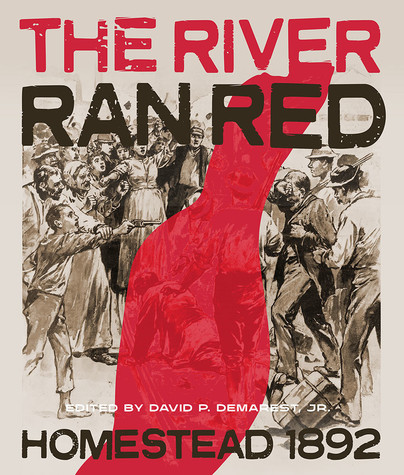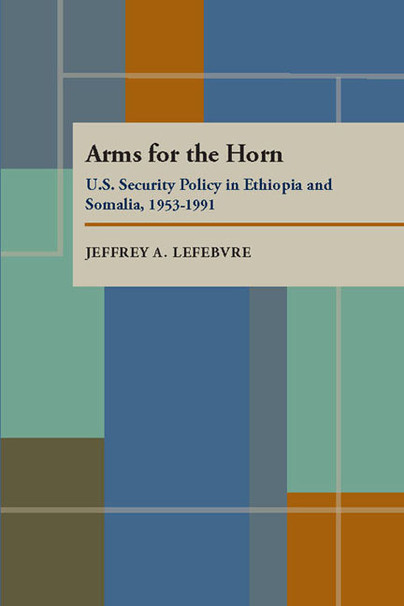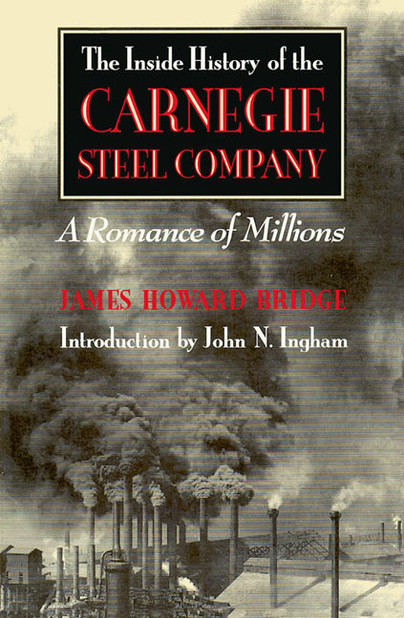
University of Pittsburgh Press
The University of Pittsburgh Press is a publisher with distinguished lists in a wide range of scholarly and cultural fields. They publish books for general readers, scholars, and students. The Press focuses on selected academic areas: Latin American studies, Russian and East European studies, Central Asian studies, composition and literacy studies, environmental studies, urban studies, the history of architecture and the built environment, and the history and philosophy of science, technology, and medicine. Their books about Pittsburgh and Pennsylvania include history, art, architecture, photography, biography, fiction, and guidebooks.
Their renowned Pitt Poetry Series represents many of the finest poets active today, as reflected in the many prestigious awards their work has garnered over the past four decades. In addition, the Press is home to the Agnes Lynch Starrett Poetry Prize, the Donald Hall Prize for Poetry, and, in rotation with other university presses, the Cave Canem Poetry Prize. They sponsor the prestigious Drue Heinz Literature Prize, which recognises the finest collective works of short fiction available in an international competition.
The Andrew Carnegie Reader
Format: Paperback
Pages: 344
ISBN: 9780822954644
Pub Date: 15 Jul 1992
Description:
“Andrew Carnegie is the only American entrepreneur who could have won distinction as an author, even if he had never seen a steel mill,” writes Joseph Frazier Wall. A skillful and prolific writer, Andrew Carnegie published sixty three articles in major magazines of his time, such as The North American Review, and eight books. Although he is best remembered today for the radical philosophy expressed in the title essay of his book The Gospel of Wealth, his other writings are readable and provocative.
The Andrew Carnegie Reader is the first anthology to bring together in a single volume a representative selection of Carnegie’s writings which show him as a shrewd businessman, celebrated philanthropist, champion of democracy, and eternal optimist. Carnegie’s first letter to the editor at the age of seventeen was the beginning of a lifelong attempt to satisfy an insatiable journalistic desire. Always voluble and candid, Carnegie was as active with his pen as with his tongue.This intriguing collection covers sixty years of the industrial giant’s life, from his letters to his cousin George Lauder, written in 1853, to the final chapter od his autobiography, completed in 1914. In his own simple, abrupt style, colored with fierce optimism, Carnegie captivated his audience.Although most of the selections were penned for an audience now long gone, today’s reader will be intrigued by the pertinence and timelessness of Carnegie’s hopes for world peace, his views on labor, and his concern for better race relations in America and their continuing applicability to humankind. A brief essay by the editor introduces each selection.

Format: Paperback
Pages: 244
ISBN: 9780822954781
Pub Date: 15 Jul 1992
Description:
The violence that erupted at Carnegie Steel's giant Homestead mill near Pittsburgh on July 6. 1892, caused a congressional investigation and trials for treason, motivated a nearly successful assassination attempt on Frick, contributed to the defeat of President Benjamin Harrison for a second term, and changed the course of the American labor movement."The River Ran Red" commemorates the one-hundredth anniversary of the Homestead strike of 1892.
Instead of retelling the story of the strike, it recreates the events of that summer in excerpts from contemporary newspapers and magazines, reproductions of pen-and-ink sketches and photographs made on the scene, passages from the congressional investigation that resulted from the strike, first-hand accounts by observers and participants, and poems, songs, and sermons from across the country. Contributions by outstanding scholars provide the context for understanding the social and cultural aspects of the strike, as well as its violence."The River Ran Red" is the collaboration of a team of writers, archivists, and historians, including Joseph Frazier Wall, who writes of the role of Andrew Carnegie at Homestead, and David Montgomery, who considers the significance of the Homestead Strike for the present. The book is both readable and richly illustrated. It recalls public and personal reactions to an event in our history who's reverberations can still be felt today.

Format: Paperback
Pages: 584
ISBN: 9780822954668
Pub Date: 23 Jun 1992
Description:
Named one of the fifty best books of 1992 by Publishers Weekly More than a century has passed since the infamous lockout at the Homestead Works of the Carnegie Steel Company. The dramatic and violent events of July 6, 1892, are among the mst familiar in the history of American labor. And yet, few historians have adequately addressed the issues and the culture that shaped that day.
For many Americans, Homestead remains simply the story of a bloody clash between management and labor. In The Battle for Homestead, Paul Krause calls upon the methods and insights of labor history, intellectual history, anthropology, and the history of technology to situate the events of the lockout and their significance in the broad context of America’s Guilded Age. Utilizing extensive archival material, much of it heretofore unknown, he reconstructs the social, intellectual, and political climate of the burgeoning post-Civil War steel industry. The Battle for Homestead brings to life many of the individuals -both in and outside Homestead- who played a role in the events leading to July 1892. From the inventor of the modern Bessemer steel mill to the most obscure immigrant workers, from Christopher L. Magee, the “boss” of Pittsburgh machine politics, to Thomas A. Armstrong, the tireless editor of the National Labor Tribune, from the “Laird of Skibo” himself (Andrew Carnegie) to the labor leader and mayor of Homestead, “Old Beeswax” (Thomas W. Taylor), Krause shows how all these lives became intertwined, often in surprising and unpredictable ways, as the drama of the lockout unfolded. As the nineteenth century was drawing to a close, the Homestead Lockout dramatized the all-important question: Can the land of industry and technological innovation continue to be “the land of the free”? Can material progress, with its inevitable social and economic inequities, be made compatible with the American commitment to democracy for all? Twentieth-century history has demonstrated all too clearly the intesity of this dilemma. In addressing some of the thorniest issues of the last century, The Battle for Homestead demonstrates the enduring legacy and relevance of Homestead over a century later.

Format: Paperback
Pages: 332
ISBN: 9780822985402
Pub Date: 15 Jun 1992
Description:
Argentine Workers provides an insightful analysis of the complex combination of values and attitudes exhibited by workers in a heavily unionized, industrially developing country, while also ascertaining their political beliefs. By analyzing empirical data, Ranis describes what workers think about their unions, employers, private and foreign enterprise, the economy, the state, privatization, landowners, politics, the military, the \u201cdirty war\u201d and the \u201cdisappeared,\u201d the Montonero guerillas, the church, popular culture and leisure pursuits, and their personal lives and ambitions.

Format: Paperback
Pages: 80
ISBN: 9780822954675
Pub Date: 01 Jun 1992
Description:
Previous Praise for Maggie Anderson's Cold Comfort "We are struck by the generosity of a voice that manages to bridge the gap between a personal and a world view, a balance that reveals a narrator who is of the world yet not overwhelmed by it." —Prairie Schooner
The Meaning Of Freedom
Economics, Politics, and Culture after Slavery
Format: Paperback
Pages: 352
ISBN: 9780822954798
Pub Date: 27 Apr 1992
Description:
In this interdisciplinary study, scholars consider the aftermath of slavery, focusing on Caribbean societies and the southern United States. What was the nature and impact of slave emancipation? Did the change in legal status conceal underlying continuities in American plantation societies?
Was there a common postemancipation pattern of economic development? How did emancipation affect the politics and culture of race and class? This comparative study addresses precisely these types of questions as it makes a significant contribution to a new a growing field.

Format: Paperback
Pages: 312
ISBN: 9780822954507
Pub Date: 16 Apr 1992
Description:
When Shawn Doubiago graduated from high school, she and her mother Sharon, embarked on a journey through Colombia, Ecuador, and Peru. In Cuzco, Peru, standing before an alter where the Incas had sacrifced their female virgins, the daughter asked, \u201cAre there any good men?\u201d South American Mi Hija is Sharon Doubiago\u2019s reply.
Set amidst the mysteries and tragedies of South American culture, this book-length narrative poem is both an account of their journey and a feminist exploration of the struggle between the sexes.
How Does Social Science Work?
Reflections on Practice
Format: Paperback
Pages: 432
ISBN: 9780822954750
Pub Date: 16 Mar 1992
Description:
The culmination of a lifetime spent in a variety of fields - sociology, anthropology, economics, psychology, and philosophy of science - -How Does Social Science Work? takes an innovative, sometimes iconoclastic look at social scientists at work in many disciplines. It describes how they investigate and the kinds of truth they produce, illuminating the weaknesses and dangers inherent in their research.
At once an analysis, a critique, and a synthesis, this major study begins by surveying philosophical approaches to hermeneutics, to examine the question of how social science ought to work. It illustrates many of its arguments with untraditional examples, such as the reception of the work of the political biographer Robert Caro to show the hermeneutical problems of ethnographers. The major part of the book surveys sociological, political, and psychological studies of social science to get a rounded picture of how social science works,Paul Diesling warns that \u201csocial science exists between two opposite kinds of degeneration, a value-free professionalism that lives only for publications that show off the latest techniques, and a deep social concern that uses science for propaganda.\u201d He argues for greater self-awareness and humility among social scientists, although he notes that \u201csome social scientists . . . will angrily reject the thought that their personality affects their research in any way.\u201dThis profound and sometimes witty book will appeal to students and practitioners in the social sciences who are ready to take a fresh look at their field. An extensive bibliography provides a wealth of references across an array of social science disciplines.

Format: Paperback
Pages: 366
ISBN: 9780822985365
Pub Date: 15 Feb 1992
Description:
Brazil was one of the most successful examples of state-led industrialization in the post-1945 era. Yet, on the surface, the Brazilian bureaucracy appears highly fragmented, personalized, and ad-hoc. Ben Ross Schneider looks behind this fa\u00e7ade to explain how the Brazilian bureaucracy contributes to industrialization by analyzing career patterns and appointments which structure incentives and power more than formal organizations or institutions.
Politics and personalism, of the right sort, Schneider argues, can in fact enhance policy effectiveness and state capacity.

Format: Paperback
Pages: 360
ISBN: 9780822985334
Pub Date: 15 Jan 1992
Description:
Using a great power-small power theoretical approach and advancing a supplier-recipient barganing model, Jeffery Lefebvre attempts to explain what the United States has paid for its relations with two weak and vulnerable arms recipients in the Horn of Africa.Through massive documentation and extensive interviewing, Lefebvre sorts through the confusions and shifts of the United StatesÆ post-World War II relations with Ethiopia and Somalia, two primary antagonists in the Horn of Africa. He consulted State Department, Pentagon, and AID officials, congressional staffers, current and former ambassadors, and Ethiopian and Somali government advisers.
The story of U.S. arms transfers to northeast Africa is tangled and complex. In 1953, 1960, and 1964-66, the United States entered into various arms provision deals with Ethiopia, spurred by the Soviet-sponsored buildup in the region. Policy changed in the 1970s: Nixon refused a large aid request in 1973, and in 1977 Carter ended EthiopiaÆs military aid on human rights grounds and denied aid to Somalia during the 1977-78 Ogaden War. Reversing this policy, the Reagan administration extended military aid to Somalia despite its aggressive moves against Ethiopia. Changes in U.S. relations and the revolution in Somalia have altered the picture once more.Jeffery Lefebvre concludes that U.S. diplomacy in northeast Africa has been overly influenced by a cold war mentality. In their obsession with countering Soviet pressure in the Third World, Washington decision makers exposed U.S. interests to unnecessary risks and given far too much for value received during four decades of vacillating and misguided foreign policy.Arms for the Horn should interest all concerned with arms transfer issues and security studies, as well as specialist in Africa and the Middle East.

Format: Paperback
Pages: 432
ISBN: 9780822960959
Pub Date: 15 Jan 1992
Description:
"For years I have been convinced that there is not an honest bone in your body. Now I know that you are a god-damned thief," Henry Clay Frick reportedly told Andrew Carnegie at their last meeting in 1900, just before J. P.
Morgan bought the Carnegie Steel Company and founded United States Steel. Three years later, James Bridge, who had served as Carnegie's personal secretary, published this book. In it he recounted the events that led up to the final confrontation between two of America's most powerful capitalists. The book created a sensation when it appeared in 1903. Not only did it describe the raw emotions of Carnegie and Frick, those most brilliant and uneasy of business partners, it also told of the history and inner workings of the industrial giant, Carnegie Steel. Bridge was an open partisan of Frick, and the portrait of Carnegie that emerges from this book is not flattering. But he was an experienced journalist, and he uses sources carefully. His book remains a striking insider's narrative of the American steel industry in the last decades of the nineteenth century-as well as the most revealing account of the emotions of some of its major owners. The introduction by John Ingram places the book in perspective for both the historian and general reader. close
Liquid Paper
New and Selected Poems
Format: Paperback
Pages: 120
ISBN: 9780822954552
Pub Date: 17 Dec 1991
Description:
Peter Meinke was a master of traditional poetic forms long before the current interest in “the new formalism.” His work is, in turn, witty, comic, sane, deeply moving, and always readable. Liquid Paper collects the best of his previously published poems from the late 1960s on with a generous selection of new work.

Format: Paperback
Pages: 378
ISBN: 9780822985341
Pub Date: 15 Nov 1991
Description:
With the development of a strong parliamentary system, Orlow shows how close Prussia came to realizing its goal of lasting democracy for the entire Reich, and how far it fell when the Nazis took power.
Widening Spell of the Leaves, The
Format: Paperback
Pages: 88
ISBN: 9780822954545
Pub Date: 17 Sep 1991
Description:
The result is a book of discursive meditations that will amply reward the reader. Part travelogue, part pilgrimage in which the shrines remain hidden until they are recognized later, Larry Levis’s startling and complex fifth book of poems is about the enslavement to desire for personal freedom, and the awareness of its price.

Format: Paperback
Pages: 308
ISBN: 9780822985303
Pub Date: 15 Sep 1991
Description:
In 1889 the Brazilian empire was overthrown in a military coup. The goodwill and assistance of the United States to the young republic of Brazil helped forge an alliance. But America's apparently irresistible political and economic advances into Brazil were also hampered by disagreements-over naval armaments, reciprocity arrangements, the issue of coffee valorization, and in the 1920s over Brazil's efforts to play an active role in the League of Nations at Geneva.
The relationship proved to be unequal, with the United States gaining influence in Latin America, as the Brazilian elite's ambitions and vanities were fed.

Format: Paperback
Pages: 352
ISBN: 9780822960942
Pub Date: 15 Jul 1991
Description:
Power is immanent in human affairs; by definition, human beings are political animals. The only way to fully comprehend and analyze the complexities of power is to locate where material, psychological, and social dimensions of political power are ultimately and socially situated and reproduced. This collection of essays highlights the theoretical concerns of political anthropology.
Initially published in the journal Ethnology, the essays were classroom tested and collected on the basis of student comments. An in-depth introduction presents the intellectual traditions in political anthropology and focuses particularly on the manner in which various periods defined and dealt with the nature of social power. It also places current works within the framework of critical but constantly revised theoretical problems.Contributors: Mart Bax; Ernest Brandewie; Karen J. Brison; Philip A. Dennis; Richard G. Dillon; Harvey E. Goldberg; James Howe; Donald T. Hughes; Roger M. Keesing; Donald V. Kurtz; Charles Lindhom; Robert F. Maher; Richard W. Miller; Sydel F. Silverman; L. Lewis Wall; Daniela Weinberg












